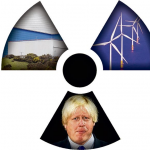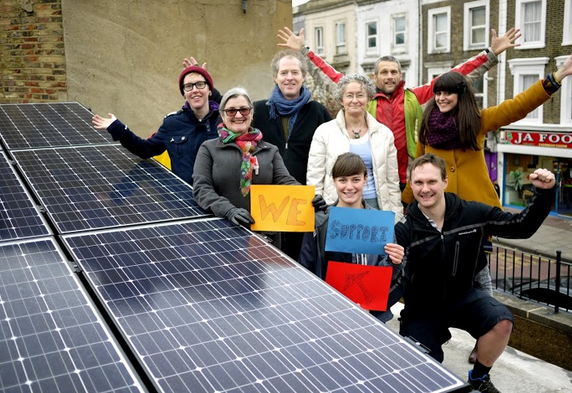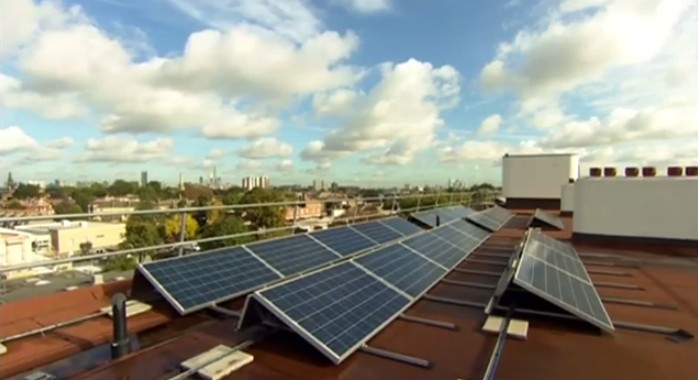Site search:
-
What’s new?
Energy for London Tags
Brent Buildings Camden Carbon Emissions CHP Cities Climate Adaptation Community Heating Community Initiatives Croydon Data DECC Decentralised Energy Distribution ECO Energy Costs Energy Efficiency Enfield FIT Fuel Poverty Funding Green Deal Hackney Haringey Housing Islington Lambeth Library Local Authorities Mayor Newham Ofgem Olympics Photovoltaics Planning RE:FIT RE:NEW Renewable Energy Retrofit Southwark Tower Hamlets Transport Waltham Forest Waste WestminsterEnergy Archives:
- February 2021 (1)
- January 2021 (15)
- December 2020 (15)
- November 2020 (9)
- October 2020 (3)
- August 2020 (5)
- July 2020 (3)
- June 2020 (4)
- April 2020 (10)
- March 2020 (5)
- February 2020 (2)
- January 2020 (3)
- October 2019 (1)
- September 2019 (4)
- August 2019 (2)
- July 2019 (1)
- August 2018 (1)
- November 2016 (8)
- October 2016 (8)
- September 2016 (2)
- August 2016 (8)
- July 2016 (14)
- April 2016 (12)
- March 2016 (16)
- February 2016 (8)
- January 2016 (4)
- December 2015 (1)
- November 2015 (1)
- October 2015 (16)
- September 2015 (3)
- June 2015 (1)
- May 2015 (1)
- April 2015 (1)
- March 2015 (1)
- February 2015 (1)
- January 2015 (1)
- December 2014 (18)
- November 2014 (4)
- August 2014 (8)
- July 2014 (7)
- June 2014 (25)
- May 2014 (8)
- April 2014 (4)
- March 2014 (12)
- February 2014 (7)
- January 2014 (13)
- December 2013 (11)
- November 2013 (15)
- October 2013 (15)
- September 2013 (18)
- August 2013 (5)
- July 2013 (20)
- June 2013 (33)
- May 2013 (8)
- April 2013 (16)
- March 2013 (25)
- February 2013 (14)
- January 2013 (20)
- December 2012 (23)
- November 2012 (23)
- October 2012 (25)
- September 2012 (14)
- July 2012 (12)
- June 2012 (43)
- May 2012 (20)
- April 2012 (8)
- March 2012 (40)
- February 2012 (39)
- January 2012 (40)
- December 2011 (22)
- November 2011 (40)
- October 2011 (33)
- September 2011 (48)
- August 2011 (40)
- July 2011 (58)
- June 2011 (41)
- May 2011 (80)
- April 2011 (38)
- March 2011 (33)
- February 2011 (25)
- January 2011 (24)
- December 2010 (3)
- November 2010 (7)
- October 2010 (6)
- September 2010 (7)
- August 2010 (1)
- July 2010 (2)
- June 2010 (4)
- May 2010 (1)
- March 2010 (3)
- February 2010 (3)
- December 2009 (5)
- November 2009 (2)
- October 2009 (3)
- July 2009 (3)
- June 2009 (1)
- April 2009 (1)
- March 2009 (1)
- February 2009 (1)
- January 2009 (1)
- December 2008 (2)
- October 2008 (1)
- September 2008 (1)
- July 2008 (1)
- March 2008 (2)
- January 2008 (2)
- October 2007 (1)
- September 2007 (3)
- July 2007 (1)
- March 2007 (1)
- February 2007 (3)
- November 2006 (3)
- August 2006 (1)
- February 2006 (1)
- May 2005 (1)
- February 2004 (1)
Renewable Energy
Haringey Solar Event
June 2014: Organised by Tottenham and Wood Green Friends of the Earth group. Details here.
Energy efficiency programme for London’s ‘Cultural & Heritage’ sector
June 2014: The Mayor’s non-domestic energy efficiency programme, RE:FIT, recently held an event focused on improving the energy performance London’s Cultural & Heritage buildings. Presentations were provided by RE:FIT participants the Royal Botanic Gardens, Kew and Millfield Theatre, who undertook their RE:FIT project through the London Borough of Enfield. Details of the event can be read here – and an article on green improvements made at the Lyric Hammersmith theatre, who plan to work with the RE:FIT programme shortly, can be see here.
Seperately, the always innovative Arcola Theatre was profiled as a case study in the government’s recent solar energy strategy for their work on using solar PV together with energy storage technology (see page 48 of the strategy document here).
Posted in Energy Efficiency, News, Renewable Energy
Tagged Buildings, Enfield, Hackney, Hammersmith and Fulham, Photovoltaics, RE:FIT, Richmond
Leave a comment
PV storage trialled in Hackney
5 April 2014: The latest Feed in Tariff (FITs) statistics continues to show London’s abysmal progress on installing photovoltaic projects (see story here) – but at least today’s Department of Energy and Climate Change (DECC) Solar Strategy (PII) highlights that there is some innovative stuff going on with PV in the capital. Not surprisingly the ground-breaking Arcola Theatre is involved (the theatre company with a fuel cell business at the side…) – see case study from strategy copied below.
Energy & Climate Questions to the Mayor
January 2014: This month the Mayor has been asked questions in relation to:
the Mayor’s meetings with energy ministers; KPIs under the Mayor’s Climate Change Mitigation and Energy Strategy; establishing a London Energy Cooperative; ECO funding in London; the number of energy suppliers signed up to the Mayor’s MoU; the Mayor’s support for the Energy Bill Revolution’s Cold Homes Week; Kew Gardens decentralised energy scheme; London avoiding the ‘capacity crunch‘; solar installations on GLA buildings; the underheating of Londoners’ homes; the RE:NEW programme energy efficiency targets; the Mayor’s concerns over Government ‘Allowable Solutions‘ proposals; insulation industry jobs; Excess Winter Deaths; insulation projects stalled under ECO; the stalled Affinity Sutton insulation project; RE:NEW targets; retrofitting and planning restrictions; renewable energy installations on the GLA estate; GLA funding to Capita to manage the RE:NEW programme; British Gas funding to ECO; the Mayor’s High Level Electricity Working Group; LED streetlighting projects; CO2 savings achieved under RE:NEW; delayed CO2 savings under RE:NEW; the Climate Change Leaders for a Low Carbon London fuel poverty project; planning CO2 target requirements; meetings with DCLG; biofuel and London buses; GLA Environment Team budgets over next two years; Mayor’s application to the Government’s Green Deal Communities Fund; and tendering for License Lite services.
Previous months questions to the Mayor can be found here.
Posted in Decentralised Energy, Energy Efficiency, News, Renewable Energy
Tagged ECO, Fuel Poverty, Planning, RE:NEW
Leave a comment
Hackney Energy hit the ground running!
January 2014: This week saw some positive news stories concerning a new London community energy group – Hackney Energy. The group launched a new twitter account @HackneyEnergy and website and – more importantly – announced that they had established a new community solar project. It’s modest at 3.84kW – but it helps power a public toilet and cafe in Clapton. Read a blog on the great story behind this project.
And on Friday the Hackney Gazette and Inside Housing covered plans by Hackney Energy to work with Repowering London on a community PV project, similar in scope to the Brixton Energy scheme. The Gazette reports that:
“Youth internships and apprenticeships will also be created by the scheme, which plans to will increase awareness about energy efficiency, provide a financial return to investors, and reduce Hackney’s carbon footprint.
“Repower London’s chief executive officer, Agamemnon Otero said: “It’s not just about putting some solar panels up on the roof, but it’s about creating a platform for those who are most disaffected, those who are out of work, so there’s something they can be part of, so they can donate their time and energy and see their community changing.” Also see Hackney Council news release.
London Overground Energy Gardens Network
January 2014: Recently appointed as one of the Mayor’s ‘London Leaders’, hear about Agamemnon Otero’s fascinating project to create an “EnergyGarden Network at stations on the Overground Rail lines with solar panels and vegetable gardens will address food and energy inequality in communities“.
Agamemnon is also CEO of Repowering London.
Mayor to battle with CLG over London energy and planning policies?
December 2013: In response to a series of Mayoral Questions (here, here and here) the Mayor has now posted his submission to the Department for Communities and Local Government (CLG) controversial (see here, here, here and here) Housing Standards Review report and consultation.
The MQ responses highlight that the Mayor has written to CLG’s Secretary of State, Eric Pickles, expressing “concerns with proposals for a National Standards set which could limit the GLA’s ability to apply planning policy on housing design and space standards as well as energy standards in new housing“.
The Mayor has also asked Mr Pickles to meet in order “to discuss these proposals, and requested the opportunity to make further comments, once CLG reaches a clearer position on the proposals”.
The Mayor’s submission document sets out that:
- London developments are already demonstrating that the carbon compliance level could be more stretching without undermining viability.
- London’s ‘interim’ standards should be retained and continue to be applied in accordance with the London Plan energy hierarchy
- Disputing the Housing Standards Review view that Government “does not believe that an interim level would be helpful to developers and is not minded therefore to set one in a nationally described standard”, the Mayor responds “On the contrary, the setting-out of a clear strategy and requirements over time in the London Plan, including ‘interim’ targets between Building Regulations and Zero Carbon has effectively created market certainty, allowing developers to innovate and to bring down costs, in a manner that serves government’s intentions from 2016.“
- That the “solutions developers are obligated to consider under the London Plan ‘energy hierarchy’ do not lead to technological blind alleys. On the contrary, heat networks are fuel and technology flexible. Rather than creating ‘blind alleys’ they make the transition to zero carbon sources of heat easier” and that
- “In the absence of the [London Plan’s] approach” the Government’s proposed changes would “undermine a key tenet of DECC’s Heat Strategy for cities“.
The submission importantly states that: “CLG have agreed to meet with GLA officers to discuss interim arrangements which allow the Mayor to maintain London Plan 2013-2016 carbon reduction targets”
A recent assessment of the energy policies under the London Plan – undertaken and published by the GLA – sets out that a significant level of energy-related commitments have been secured including:
- Equivalent of circa £32m investment secured through energy efficiency measures alone.
- Circa £20 million of investment in new CHP plant able to produce 29MW of electricity and heat.
- Circa £133 million of investment in communal heat network infrastructure for ~ 53,000 dwellings
- Circa 55 permanent jobs created in maintaining heat network infrastructure and associated energy supply plant. Additional jobs will also be created in the supply chain
The House of Commons Environment Audit Committee undertook their own review of the Housing Standards Review document, publishing their results on 20 November. The report echoes the Mayor’s sentiments stating:
- That local choice in favour of practical, sustainable local solutions will be radically curtailed and replaced with a lowest-common-denominator national standard
- That the proposed replacement for CSH standards on energy and carbon emissions, the 2016 zero carbon homes standard, has been significantly diluted
and goes further [para 33]:
- The specifications around the zero carbon homes target have been watered down to such an extent that the proposed standards in Building Regulations now fall some way short of the higher levels of the CSH.
- There is no guarantee that further dilution will not occur in the run-up to the implementation of zero carbon homes in 2016.
- DCLG must maintain CSH energy assessments as a tool for local authorities to lever in renewable energy until Building Regulations deliver genuinely zero carbon homes, which was the original target and is defined by CSH level 6.
There’s no information over whether the Mayor has met with Mr Pickles as yet – and CLG have as yet not indicated when they are to finalise and publish their conclusions to the Housing Standard Review’s proposals. However it’s clear that the London Plan’s energy and climate policies have – and are continuing to – create a major shift in the development of more energy efficient buildings in London. Developers, architects and sustainability experts are delivering some of the most innovative green buildings in the world here in London as a consequence of the London Plan, and hence it would be a huge surprise if the Mayor allowed his successful planning policies to be diluted by the Government’s latest – and hugely confused – zero carbon buildings proposals.
Posted in Decentralised Energy, Energy Efficiency, News, Renewable Energy
Tagged CLG, Community Heating, Planning
Leave a comment
Innovative Kingston heat pump scheme
November 2013: Local MP and Secretary of State for Energy, Ed Davey, recently opened a novel heat source pump scheme providing heating to a residential scheme in Kingston drawn from the Thames. An article in Renewable Energy Installer sets out that “Just 200 metres from the river bank, its 2.3MW community heating system draws up to 13 million litres of water each day through high efficiency heat exchangers. The low grade heat is carried to a plant room in the building via a closed loop where Mitsubishi Ecodan heat pumps delivers it as usable heat to meet all heating and hot water demands in the complex.”
A huge amount of background detail to this novel scheme can be read in trade journal Modern Building Systems here. Mitsibushi have described the scheme as “one of the most impressive in Europe if not the world. This is a pioneering installation and hugely innovative.”
Brixton Energy on the Beeb
November 2013: The recent BBC London coverage of the Brixton Energy solar schemes can now be viewed on Youtube here. The new piece includes interviews with Brixton Energy and Repowering London Director Agamemnon Otero and Labour Council Leader of Lambeth, Lib Peck.
Cllr Peck states in her interview that local authorites should be looking to work on similar projects in their own areas but it will be about the will of councils to say they want to make these projects happen and get rid of the challenges and obstacles.
Energy & Climate Questions to the Mayor
October 2013: This month the Mayor has been asked questions in relation to:
Climate change leadership; London’s successful ‘green economy”;
potential for wind energy in London; the human contribution to climate change; Nissan Electric taxis‘; emissions from electric vehicles; promoting community energy through planning; Mayor’s briefing to the House of Lords on the Energy Bill; Mayoral visits to the Dagenham wind power project; RE:NEW programme advice on supplier switching; supplier switching advice; Nuclear power and London; bills savings achieved by households under RE:NEW; the Mayor’s energy advisor’s visit to New York; the Mayor’s energy advisor’s visit to Rio de Janeiro; the Mayor’s view on wind farms; London Energy Efficiency Fund (LEEF) Advisory Committee papers; nuclear power value to Londoners; roll-over energy contracts for SMEs; CO2 savings achieved under RE:NEW; the Mayor’s energy advisor’s visit to San Francisco; the Mayor’s view on MASDAR’s investment in the London Array; the Mayor’s view on shale gas; investment opportunities for London through financing wind power projects; hosting a London ‘Climate Week‘; RE:NEW advice supplier switching; renewable electricity supply to the Tube; SOURCE London charging points; London’s need for more electricity substations; completion of Affordable Warmth and Health Action Plan; applications to the London Schools Hydrogen Challenge; budget allocated to the Mayor’s new Affordable Warmth and Health Action Plan; the Mayor’s new Affordable Warmth and Health Action Plan; Londoners supported through the Mayor’s Know Your Rights helpline; GLA officers working on the new Affordable Warmth and Health Action Plan; RE:NEW report backs; Benefit Entitlement Checks (BECs) under RE:NEW; carbon offsets for flights; key activities in the Mayor’s new Affordable Warmth and Health Action Plan; private sector funding leveraged by RE:NEW; targets under the Affordable Warmth and Health Action Plan; community level responses to heatwaves; disseminating research undertaken to date on how to cope with heatwaves and the health impacts of cold homes.
Previous months questions to the Mayor can be found here.
Energy and Climate Questions to the Mayor
September 2013: This month the Mayor has been asked questions in relation to:
How the Mayor’s programmes will respond to the forthcoming IPCC’s (Intergovernmental Panel on Climate Change) 5th Assessment Report; the Mayor’s “climate sceptic views“; London’s growing energy demand; £145k spend on climate change adaptation; the amount of energy generated from waste incineration; the number of GLA officers working on energy efficiency retrofit; the amount of ECO funding that could be directed to London; the operation of the RE:FIT schools energy efficiency programme in Harrow; the RE:FIT schools programme in Brent; Government’s proposed changes to building regulations and its potential impact on London Plan energy requirements; the Mayor’s response to DECC’s Community Energy – Call for Evidence; the Mayor’s support for community energy schemes in London – such as Brixton Energy; publication of the latest London Energy and Greenhouse Gas Inventory (LEGGI); the cost of producing ‘Using Local Powers to Maximise Energy Efficiency Retrofit – How to’ materials for London’? (report here); the terms of loans provided by the London Energy Efficiency Fund (LEEF); extending LEEF loans to the private sector; details of the LEEF Advisory Committee; consultancy companies working on LEEF; the amount spent by LEEF; the number of loans given out by LEEF; rollover energy contracts for SMEs; Londoners energy bills; the amount of renewable electricity provided by Source London electric vehicle charging points; funds previously spent on adding energy efficiency measures to Metropolitan Police buildings currently for sale; developing a Fuel Poverty Action Plan for London; the supply of electricity to London’s electric vehicle charging points; the supply of electricity to London Underground; London Green Deal targets; a London Green Roofs map; the Mayor’s Green Deal assessment on his home; stimulating Green Deal finance packages; spend of the Green Bus Fund; funding received from the Green Bus Fund; identifying brownfield land in London suitable for sustainable energy projects; CO2 savings achieved by the Mayor’s climate change programmes; potential for the London Pension Fund Authority to invest in low carbon energy projects; when the next update to the Mayor’s Climate Change Adaptation Strategy is to be published; how climate change will affect London’s summer temperatures; new anaerobic digestion plant in Surrey; the level of waste being directed to the Beddington incinerator; the London Plan’s policies on incineration; the Mayor’s approval of the Beddington incinerator; if the Mayor had pressed for the Beddington project to develop as a anaerobic digestion plant; if the Beddington incinerator can operate in combined heat and power (CHP) mode; heat network around the Beddington incinerator; the growth of waste incineration in London to 2016; the role for future incineration in London; local planning controls and fracking; the fracking potential in London; details of the new RE:NEW domestic energy efficiency programme; targets for the new RE:NEW programme; the choice of the Capita Group to manage the new RE:NEW programme; GLA buildings that have been treated by the RE:FIT programme; whether the Mayor’s Environment advisor had visited the Kings Cross CHP and district heating scheme.
Previous months questions to the Mayor can be found here.
Posted in Decentralised Energy, Energy Efficiency, News, Renewable Energy
Tagged Anaerobic Digestion, Brent, Buildings, Carbon Emissions, CHP, Climate Adaptation, Community Initiatives, Energy Security, Funding, Green Deal, Harrow, Lambeth, London Green Fund, Natural Gas, Planning, RE:FIT, RE:NEW, Retrofit, Schools, Transport, Waste
Leave a comment
Boris sets out his support for both nuclear & fracking
 15 September 2013: The Mayor has decided to set forth his views on UK energy policy in the national press once again. After writing to The Times back in July (see below), Boris has now penned a piece for The Sun (behind paywall…but fortunately reported elsewhere), where he states that: “the country needs to ‘grow some collective cojones and launch the nuclear energy programme that this country has too long delayed… Next, we must stop pussy-footing around, and get fracking. Even if we have 100s of fracking pads, they are nothing like as ugly as windmills, and they can be dismantled as soon as the gas is extracted.”
15 September 2013: The Mayor has decided to set forth his views on UK energy policy in the national press once again. After writing to The Times back in July (see below), Boris has now penned a piece for The Sun (behind paywall…but fortunately reported elsewhere), where he states that: “the country needs to ‘grow some collective cojones and launch the nuclear energy programme that this country has too long delayed… Next, we must stop pussy-footing around, and get fracking. Even if we have 100s of fracking pads, they are nothing like as ugly as windmills, and they can be dismantled as soon as the gas is extracted.”
The Mayor continues in a similar vein in the article (also reported here ‘Boris on our ‘pathetic apology’ for an energy policy‘) railing against wind turbines – echoing views from a radio interview he undertook on LBC earlier this year (Wind farms couldn’t pull the skin off a rice pudding, says Boris Johnson).
Boris has previously used his weekly Daily Telegraph column to champion gas fracking (Ignore the doom merchants, Britain should get fracking) and much of the commentary for The Sun article was previously set out in a letter the Mayor sent to the The Times a few months ago:
” Sir, Many people have not yet woken up to the reality that the population of London is now growing faster than any city in Europe. As I make clear in our 2020 Vision, this demographic explosion is placing huge demands on our infrastructure — including power generation. It is a tragic comment on Labour’s failure to plan ahead that in only two years our electricity capacity headroom (the difference between demand and supply) will be down to 2 per cent. We will have to ask some of our more energy-intensive industries not to operate at peak times, the kind of policy we last saw in the 1970s. It is time for maximum boldness in energy supply. I fully support the Government’s drive for nuclear power, and if reserves of shale can be exploited in London we should leave no stone unturned, or unfracked, in the cause of keeping the lights on.
Boris Johnson Mayor of London” July 2 2013
That letter was a response to energy regulator Ofgem’s capacity report which set out that “electricity supplies are set to tighten faster than previously expected in the middle of this decade”. Energy security appears to have become a greater concern to the Mayor since raised by London businesses, and has led to the establishment of a London ‘High Level Electricity Working Group‘ coordinated by the GLA.
Whilst security of energy supply issues are a real concern, the Mayor’s choice of solutions are of no real help at all. Nuclear negotiations have stalled over the past year, and even if agreement were reached today, the first power produced by a new nuclear plant is the best part of a decade away – well after the 2015 capacity concerns. Discussions around shale gas have become increasingly polarised: whatever the final outcome, it is unlikely that fracked gas will have any significant role to play in the nation’s energy mix for some time.
Posted in News, Renewable Energy
Tagged Energy Security, Mayor, Natural Gas, Ofgem, Renewable Energy, Wind
Leave a comment







